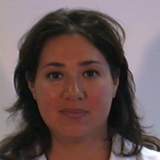Innovation Space Bachelor End Project (ISBEP)
In this course, students collaborate in interdisciplinary teams of 3-6 to complete open-ended, challenge-based projects. They interact with challenge owners, process coaches, and academic supervisors from TU/e start-ups, researchers, and industry. The course aims to achieve both faculty-defined content learning goals and competences such as reflection and self-directed learning. Students assume ownership of their projects and work with a high degree of independence.
- Teachers: dr.ir. P.A.M. Ruijten-Dodoiu, C.A. Apon, M. Sala.
- Academic level: Bachelor.
- Stakeholders: Challenge owners (TU/e teachers), head coach (responsible lecturer), ISBEP process coaches, BEP coordinators (linking students to academic supervisor), Academic supervisors (coaching and assessment on disciplinary domain), innovation Space (connected to challenges & resources).
- Disciplines: Open to all disciplines within TU/e.
- Resources: Challenges are from different partners (companies, student teams) challenge owners can both be external (not related to the university) as well as internal (related to the university). Every challenge owner provides resources to the projects, for example budget, access to their network, materials and or facilities. General resources are provided by innovation Space, such as the accesses to prototype facilities.
Learn more about this course on the official page.
SETUP
This course’s setup consists of two quartiles that students must complete in sequence and that are both mandatory.
Students can choose between 15 real-life challenges from university, companies or student teams:
- Beaver digging activity scanner
- Ocean bound plastic
- Warm technology for people with dementia
- Design self-sustaining lights
- Modular buildings
- Packaging solutions
- Innovative audiometry
- MBSE in ship building
- Autonomous scoring system
- Autonomous information network
- Engagement for social impact
- Ballistic protection
- Energy transition
- Farming of the future
- Urban communities of the future
The students work in interdisciplinary teams. The approach is learn-by-doing in the Matrix building (innovation Space) with prototyping and co-working facilities. Students are guided by designers and artists, coaches, and scientific staff. Workshops, field trips and group sessions can enrich their learning process.
Students reflect weekly on their developments including a content-wise (progress on the project) and social-wise (team/cohort building) perspective together with their coach. Feedback sessions, additional workshops and field trips will be planned at least once during the semester, according to the needs of the students in their process.
INTENDED LEARNING OUTCOMES (ILOS)
In addition to the learning objectives that are specified by each student’s respective department, the following learning objectives will be assessed:
Students are capable of performing the following activities under supervision:
- Identify the needs of different stakeholders and integrate them in the viable solution.
- Identify the interdisciplinary problem that needs to be solved, and the disciplinary components.
- Integrate the individual components (i.e., individual contributions) into a working/experiential prototype.
- Apply the knowledge from different disciplines in a project & integrate them into a viable solution.
- Being able to communicate and collaborate with people from other disciplines and apply in a real-world case.
- Reflect on the role that they have played in the interdisciplinary team, and its impact on professional identity.
- Manage a situation where there is no clear answer to their problem.
LEARNING ACTIVITIES
Throughout the project, many activities are organized to assist the students in their development. Students will learn competencies that are specific for ISBEP (i.e., related to the interdisciplinary project), and are expected to internalize these skills and demonstrate sufficient growth throughout the project.
ASSESSMENT
The final assignment is 100% of the final grade. The assessment of ISBEP05 focuses on growth throughout the semester, on the selected learning objectives. Students self-assess and reflect periodically and individually on the development of their competencies, receive validations of these assessments by the process coach, and receive a final assessment at the end of the project. If the students comply with the expectations of growth, and if they score sufficient on the ISBEP Rubrics, they pass the course. Next to that the students are assessed for the BEP part at their departments.
The academic coach assesses the content of the final deliverable according to the regulations of the student’s educational program. This is part of the student’s project, but not of the ISBEP05 component. For ISBEP05 students will be formatively assessed on the ISBEP specific learning objectives multiple times throughout the project.
We see assessment as learning. Feedback along the process. Pass no pass form innovation Space and is based on the process.
EVALUATION
The course does not have a standard evaluation process, but the feedback is given verbally throughout the course.


